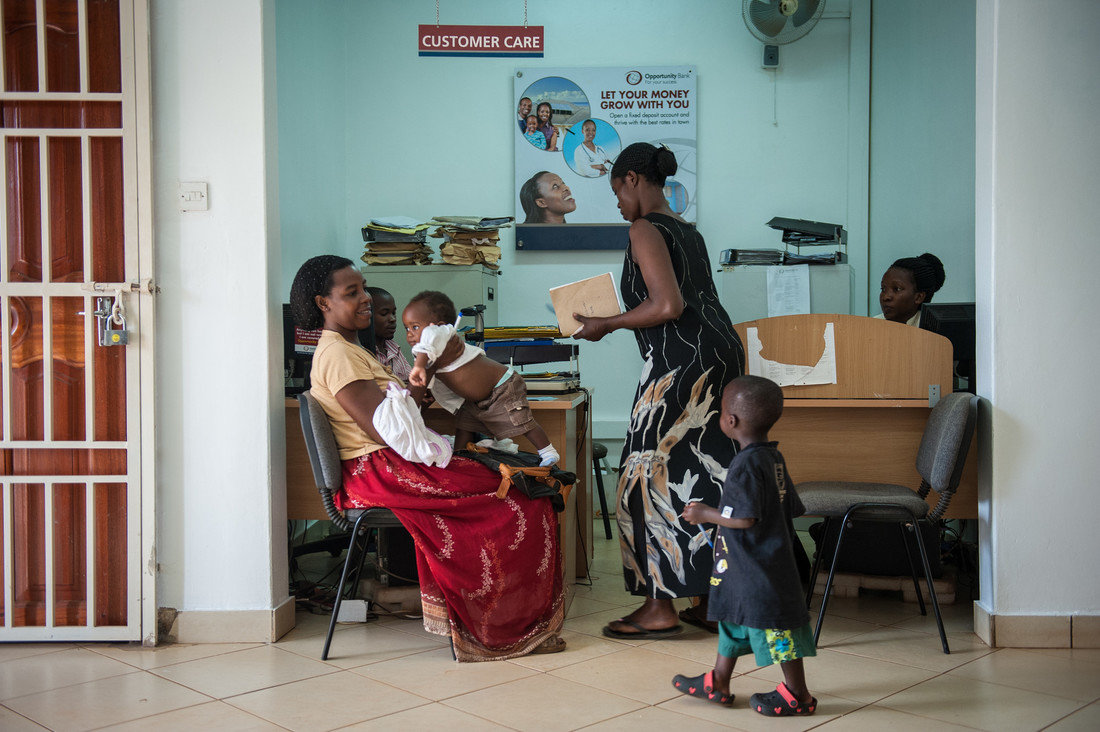
Client Centricity: A Necessary Tool on the Pathway Out of Poverty
Innovation is happening among financial service providers in developing countries. Its most public face is a greater focus on satisfying clients, which is enabling poor and marginalized people to acquire the tools they need to move out of poverty.
As I write this, there are two billion people around the world without access to formal financial services. Even among those who have accounts, 50 percent are dormant and usage continues to be a key concern.
The question, therefore, becomes: are we providing what people living in poverty want and expect, what helps them manage their day-to-day challenges and, most importantly, what helps them fulfill their economic and other goals?
Answering these questions requires us to better understand our clients’ behaviours and their financial habits. The MasterCard Foundation strongly believes that an intimate understanding of clients is a necessary precondition for financial service institutions to design intuitive and relevant products and services for their clients.
We also believe that those client insights in turn provide the institutions with a competitive edge, meaning that there is a business case for client centricity. When you provide services that are true solutions to challenges faced by the poor, there will be uptake and usage.
Over the last several years, the Foundation has identified aspects, both technical and other, that make it easier to identify what constitutes client centricity. To paraphrase an American jurist: You may not be able to offer a crisp definition but you certainly know it when you see it! It’s a way of doing business where decision-making is driven with clients in mind; where empowering clients is a key goal of an organization; and where there is a recognition that there is a need to alter organizational mindsets to better align with clients being served.
We recognize that, since the shift towards client centricity requires a shift in business and operating models, it will take time to implement this process. It is a thoughtful journey for institutions, and a prioritization of efforts, through which value for the client and for the institution itself is delivered incrementally.
The goal of The MasterCard Foundation Symposium on Financial Inclusion is to bring examples and evidence of this shift taking place in the financial services industry in developing countries. Speakers at the Symposium are practitioners who discuss how they are building internal capabilities that help them to meet their clients’ needs.
- Artoo, from India, enhances the relationship between customers and field agents by equipping agents with easily-adoptable technology. Their solutions have helped drive acquisition costs and processing times down significantly.
- 4G Capital provides rapid, short-term loans to rural customers in Kenya, together with coaching services particular to the agricultural sector. Its customer service features have led to an impressive net promoter score of 72 percent and over 75 percent repeat customers.
- Hello Paisa, from South Africa, has engaged the migrant community in that country to develop a remittance product which enables people to send money to loved ones far away. A key factor behind increasing outreach numbers for this firm is its constant feedback loops with the community.
The three finalists will be in Kigali, at our Symposium on October 21, 2016, to present their innovative approaches, solutions and successes to attendees. The audience will vote to decide the winner of the 2016 Clients at the Centre Prize. You can follow this on Twitter by using the hashtag #SoFI2016.



